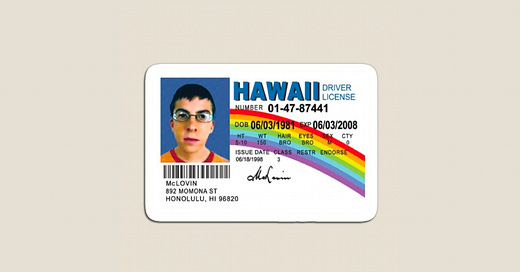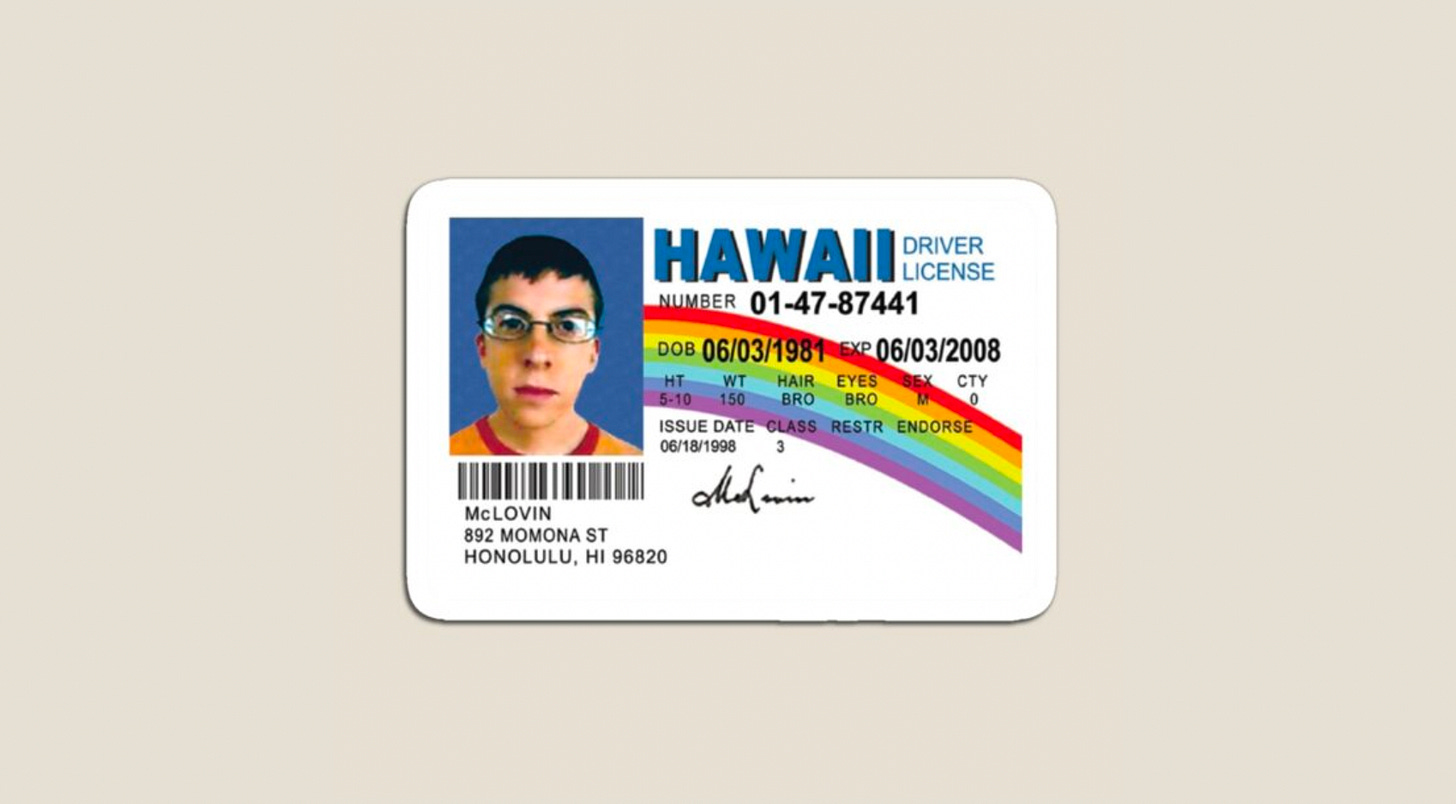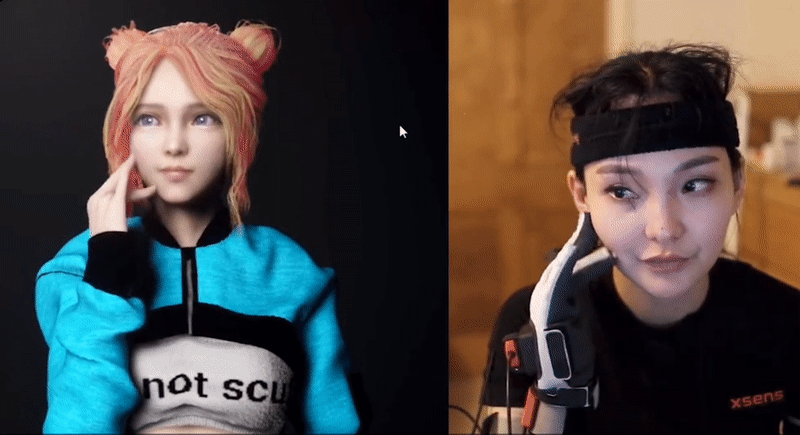Hey, friends—two weeks in a row? Wow (!!) amiright? My goal is to write more and, I have to say, it’s going pretty well so far. You may have noticed I renamed the newsletter from (un)real to online/offline as part of this effort. I think it simplifies the topics we’ll explore together and is in closer alignment with the original goal of this newsletter; to explore the collision between real and digital life (read more here). With that said, this week I want to share a stream of consciousness on pseudonymity. This newsletter is meant to be a conversation, so do reply/DM me with your thoughts/questions. And if you haven’t already, make sure to subscribe below.
If you’re Very Online like I am, then you probably know of West Elm Caleb—a guy in NYC that habitually dates and ghosts multiple women, and consequently got doxxed on Tik Tok for his behavior. There were so many stories about his shenanigans that people couldn’t help but watch and react across social platforms. The most interesting part of it, to me, was how quickly people found West Elm Caleb on LinkedIn and other social channels by using those three words. In fact, you can find almost anyone online using reverse image search, name, email, phone number, social handle, and/or employer ... And you can do it quickly, too.
We’ve lived on the internet for over a decade with key actions tied to our legal/IRL name (thanks, Facebook). This link impacts professional and personal trajectory, particularly for creators who are now expected to grow audiences by producing engaging content that is also authentic. As self becomes more valuable, so does the pressure to curate self. The result is fractional self-expression and affected authenticity that may bring fortune, but at the expense of growth and discovery.
Online shouldn’t have to mimic offline life because identity is so much more than a driver's license. Identity is complex, dynamic, and liberating; a pseudonymous existence online would help us manifest this premise.
Personally, I’ve spent hundreds, maybe thousands, of hours pseudonymously traversing the internet. From my design blog to writing forums, to years on Tumblr, back to design, to managing interest-based communities, and so much more ... I’ve lived several lives on the internet and used one pseudonym for all of my activities. If people knew me in a new space or community, then great—my reputation preceded me. If not, then I got a new opportunity for self-expression.
People have been taking control of their digital identity for a while, supplementing a carefully crafted “professional” or “creator” profile with alt accounts where self-expression is boundless. I have friends who have three Twitter accounts: one for their career, one for their close friends, and another for the void. If it sounds like a lot, it’s because it is. At some point, the internet went from a playground of self-expression to a factory devoid of fun. Fortunately, the tide is turning.
Last week, Twitter launched NFT profile pics, a move that’ll have a greater impact than people may realize. Imagine, hypothetically speaking ... You can log into a social platform using an ethereum wallet address that’s inherently pseudonymous. Your profile pic is Doodles NFT, but you also hold a Crypto Coven NFT and some $FWB tokens. You click into the Coven community to read updates from other members around the world and to watch some exclusive content. After a witchy few minutes, you go to your timeline and fire off shitposts, restricting the read/reply of a few to $FWB holders only. You then remember that you’re hiring a new developer, so you view some profiles to find wallet addresses that enable you to see historical work/contributions to the ecosystem. And so on.
Now, imagine that this social platform has an underutilized social graph. That you could capture social proof/capital on-chain via follows or engagement, for example. You’d be pseudonymous with a reputation, social and financial, that could be linked across ethereum wallets. You could express and explore identity in limitless ways that are not currently possible on pseudonymous-friendly platforms like Reddit, Discord, Tumblr, and even Twitter.
When discussing anything social, it’s imperative to consider health and safety. There are arguments that pseudonymity could lead to abuse. The assumption is that attaching online activity to a person’s legal identity means they won’t act in bigoted ways, for example. However, research has shown that internet trolls are more abusive when they waive anonymity online because using their real name brings credibility and popularity. Pseudonymity with an on-chain reputation (immutable records) has the potential to incentivize healthy behavior and accountability, thereby fostering a safer and more secure existence online.1
We’ve made many technological advancements in the last decade (blockchain, GPT-3, GANs) that, together, can make the internet fun again. Personally, my master plan is to create a pseudonym like CodeMiko, a virtual persona and YouTube/Twitch creator, but without the technical motion/facial hardware and such. I’ve written before about how I think the future is personal avatars like Max Headroom, a fictional character introduced in the late 1980s who was supposed to be AI-generated with an altered voice.2 Today, NFTs are starting to give us space to explore how we show up on the internet. Tomorrow, we may have a suite of avatars bound together by on-chain reputation. The best part? We can creatively and safely be more of ourselves both online and offline.
Thank you for reading. If you’re new to online/offline, make sure to subscribe to join the conversation.
Further reading/watching:
+ On-chain Anonymity vs. Pseudonymity by Gemini
+ The Pseudonymous Economy by Balaji Srinivasan
+ Abuse and harassment on the blockchain by Molly White
+ A Novel Framework for Reputation-Based Systems by Jad Esber and Scott Kominers
To be clear, I believe capturing social signals like engagement and contribution on-chain contextualizes reputation. This isn’t an argument for a fully on-chain social platform, something I remain wary of given the potential for bad actors and real-world harm. If you have a conflicting opinion, I’d like to hear from you—please message me so we can chat.






